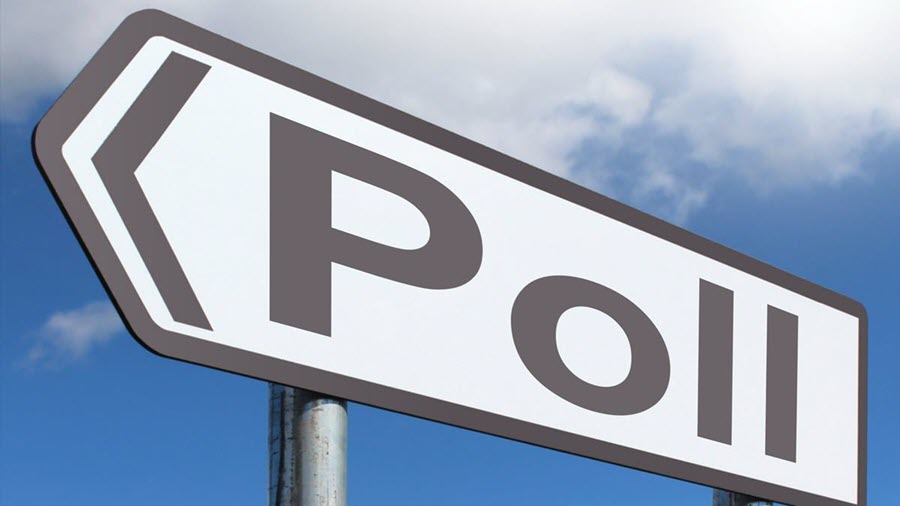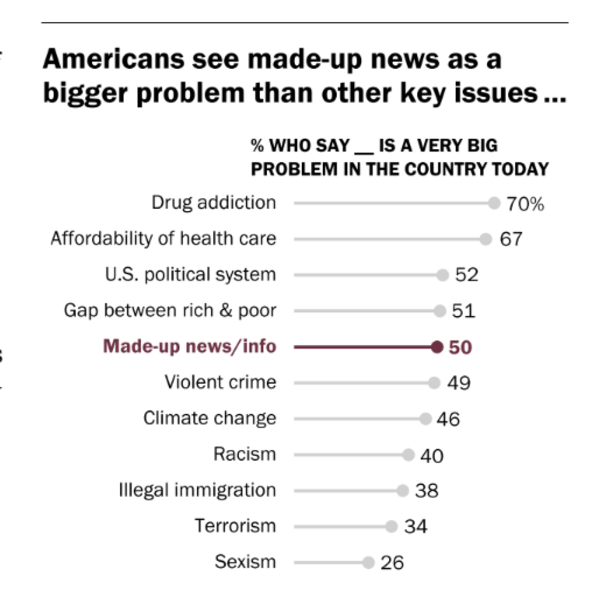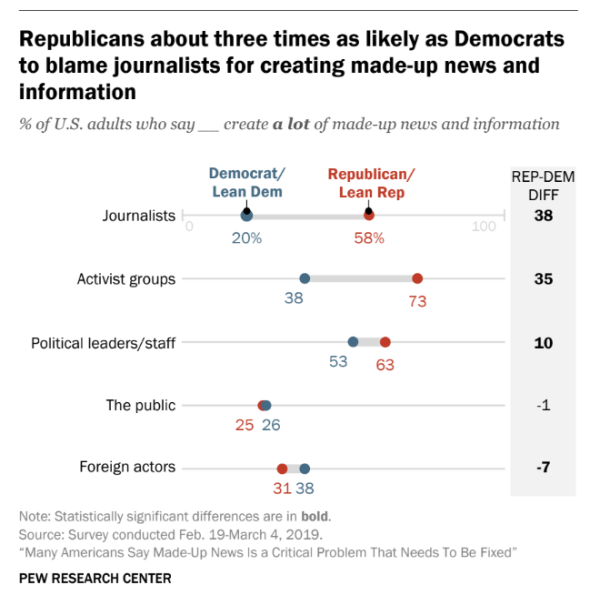Pew: Americans Say Made-Up News is Bigger Problem Than Terrorism

The smarter way to stay on top of broadcasting and cable industry. Sign up below
You are now subscribed
Your newsletter sign-up was successful
The majority of Americans said made-up news has eroded confidence in government institutions and in each other, and see it as a bigger problem than racism, climate change or terrorism.

That is according to a new Pew Research study released Wednesday (June 5).
Pew polled 6,127 U.S. adults between Feb. 19 and March 4.
The study found that 68% of respondents said that made-up news (it does not use the term "fake news" which the President has co-opted to apply to mainstream media outlets he dislikes for stories critical of him.
Related: Mueller Report Says Trump Pressured McGahn to Brand Real News 'Fake'
Study co-author and Pew senior researcher Jeff Gottfried confirms the avoidance of the 'fake news' label.
"[W]e intentionally used the term 'made-up news and information' instead of focusing on 'fake news." he told Multichannel News. "The term 'fake news' has been used by various actors to refer to a wide range of content, including completely made-up news, but it also has been used to refer to other types of information as well. The purpose of this study was to focus on news and information that is entirely false."
The smarter way to stay on top of broadcasting and cable industry. Sign up below
More than half (54%) say that made up news and information is having a "major" impact on their confidence in each other.
On the list of "very big problems," drug addiction leads at (70%) identifying it as such, followed by affordable health care (67%), the political system (52%), the gap between rich and poor (51%), made-up news and info (50%), violent crime (49%), climate change (46%), racism (40%), illegal immigration (38%), terrorism (34%) and sexism (26%).
A majority (57%) says political leaders and their staffs create "a lot" of bogus news and info, and activists get a lot of blame, too (53% say they, too create "a lot," followed by journalists (36%), foreign actors, and the public.

Republicans and those that lean Republican are about three times as likely to blame journalists (58%) as are Democrats or those who lean Democratic (20%).
News consumers aren't taking the trend lying down, with many fact checking stories themselves or changing their news sources.
As to who has the most responsibility for reducing it, the news media lead by a wide margin at 53%, followed by the public (20%), the government (12%), tech companies (9%) and none of the above (5%).
But the respondents said it is primarily the job of real journalists to fix the problem of bogus stories, though they are not optimistic. The majority (56%) said the problem will likely get worse, with only one in ten saying made-up news will decrease over the next five years.
A vast majority (79%) say "steps" should be taken to restrict bogus news, while only 20% called it protected communications.
The margin of error for the entire sample is plus or minus 1.6 percentage points. For Republican/lean Republican (2,522 respondents), it is 2.5 percentage points. For Democrat/lean Democrat (3,393 respondents) it is 2.2 percentage points.
Contributing editor John Eggerton has been an editor and/or writer on media regulation, legislation and policy for over four decades, including covering the FCC, FTC, Congress, the major media trade associations, and the federal courts. In addition to Multichannel News and Broadcasting + Cable, his work has appeared in Radio World, TV Technology, TV Fax, This Week in Consumer Electronics, Variety and the Encyclopedia Britannica.

